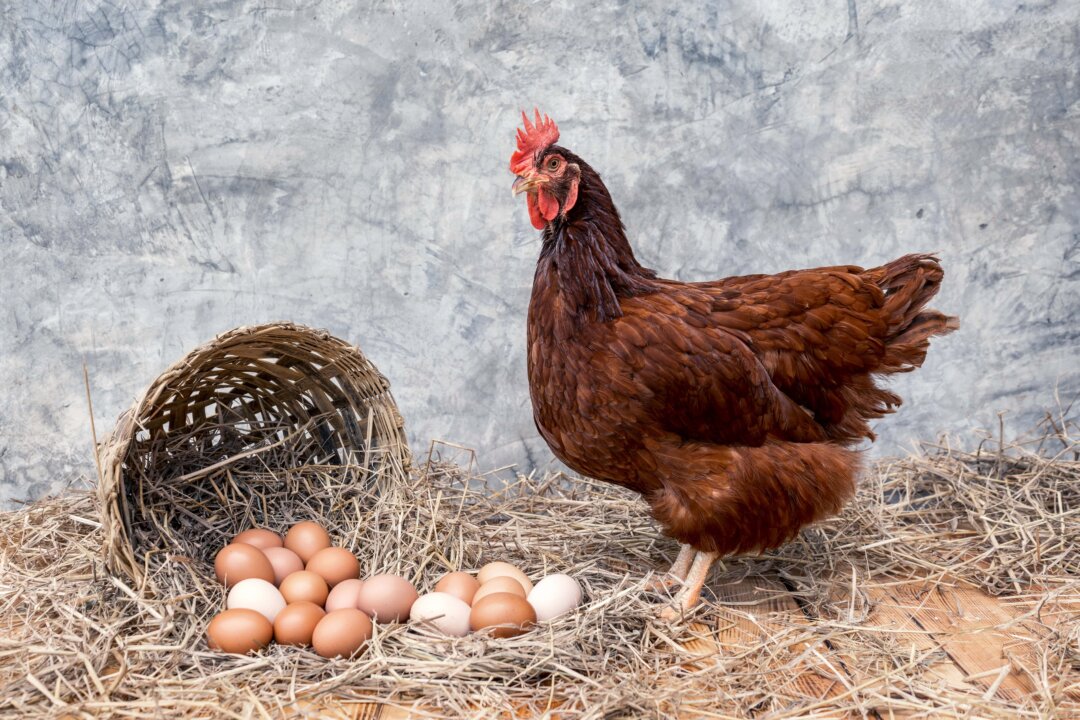So far the H7N6 virus is confined to 1 farm in the southern province of Otago, and birds are to be destroyed in the hope of preventing the spread.
New Zealand’s first confirmed case of high-pathogenic avian influenza H7N6, or bird flu, has been discovered on a farm in the southern province of Otago, and officials are scrambling to contain the outbreak as the infection spread to a second shed overnight.
All poultry exports are on hold, and a 10 kilometre buffer zone has been established around the farm as 80,000 chickens are to be destroyed.
The Mainland Poultry Hillgrove free-range farm is about an hour north of Dunedin. The site has four sheds, each holding 40,000 birds, so the current strategy means half of them will go.
Ministry for Primary Industries (MPI) officials say the infection has “likely developed from interactions with local waterfowl and wild birds.”
“Low pathogenic viruses are present in wild birds here, especially waterfowl like ducks, geese, and swans, and the virus can mutate on interaction with chickens,” said Biosecurity New Zealand Deputy Director-General Stuart Anderson.
“It is important to note that the strain found on this farm is not a wildlife-adapted strain like H5N1, so we believe it is unlikely to be transmitted to mammals.”
Earlier this year, when the researchers analysed 16 years of MPI data for avian flu covering some 19,000 wild birds, they found the most frequent carriers weren’t migrating birds but mallard ducks.
Eggs and Poultry Still Safe to Eat, Ministry Says
To date, there have been no reports of ill or dead birds on other poultry farms, and the Ministry says there are no human health or food safety concerns. It is safe to consume thoroughly cooked egg and poultry products, though not raw eggs.
“We aim to stamp this out as we did with an infectious bursal viral disease that affected chickens in 2019,” Anderson said.
That outbreak occurred on the same farm affected by the current virus.
Culling is expected to take two to three days, using existing industry standard practice of CO2 gas, which is regularly used to euthanise chickens. Once the sheds have been depopulated, they will be thoroughly cleaned.
John McKay, chief executive of Mainland Poultry, said the company is committed to taking quick action.
“We have been preparing for an event like this for some time, knowing that low-pathogenic avian influenza is already present in New Zealand wild birds. Fortunately, this is not the H5N1 type that has caused concern for wildlife in other parts of the world. International experience with avian influenza has shown us this particular strain can be eradicated quickly and successfully,” he said.
Unlike the international spread of bird flu, this incident results from the virus converting from a low pathogenic strain—which causes flu-like symptoms—to a high pathogenic strain, which causes very serious disease and can lead to sudden death.
Farmer Took the Right Action
“We acknowledge this is an extremely difficult time for the farm’s operator, but we commend their actions,” Anderson said.
“Mainland Poultry took the right steps by notifying us of sick and dying birds. The farm has strong biosecurity standards. Three specialist veterinarians from the Ministry for Primary Industries are on site.
“They have been carrying out further investigations and taking samples from birds in other sheds on the farm and conducting tracing work to six other poultry farms in the area linked to the affected property.
Authorities are ready to place biosecurity controls on any property where risks appear.
“We are also tracing all movements to and from the farm over the past week. We will place biosecurity controls on any property if we need to manage any biosecurity risk,” he said.
The incubation period for the virus is usually three to 14 days, with a possibility of up to 21 days, so testing will continue over the next two to three weeks.
Biosecurity Minister Andrew Hoggard said the farmer first noticed his birds falling ill on Nov. 25.
A local vet treated the birds with antibiotics but more began to die, prompting him to notify the MPI on Nov. 30.
Testing teams arrived the next day and confirmed the positive result for the H7N6 strain, and the farm was locked down a day later.
At present, there will be no major impact on egg supplies as New Zealand has about 3.9 million layer hens.

